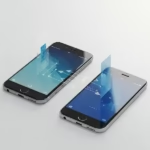Android vs iPhone: Which Smartphone Reigns Supreme? A Feature-by-Feature Comparison to Help You Decide.
Choosing between an Android phone and an iPhone is a major decision for smartphone buyers. Both offer powerful features and vast ecosystems, but they cater to different preferences and needs. This article provides an unbiased comparison to help you determine which platform is better – Android vs iPhone here is a breakdown of their features so you can make an educated decision.
Features Where Android Often Excels:
- Customization: Android offers unparalleled customization. Users can change almost every aspect of the interface, from widgets and launchers to icon packs and custom ROMs. For example, you can completely redesign your home screen layout, something iOS restricts.
- Open Ecosystem & File Management: Android’s open file system allows for easy drag-and-drop file management, similar to a computer. You can access and organize files through a dedicated file manager app. iPhones have a more sandboxed file system.
- Hardware Variety & Price Points: The sheer variety of Android devices is a major advantage. You can find Android phones at virtually every price point, from budget-friendly options to ultra-premium devices, with diverse designs and features like foldable screens.
- Expandable Storage & Ports: Many Android phones offer microSD card slots for expandable storage, a feature absent on iPhones. Additionally, Android devices commonly use USB-C ports, offering more versatility for charging and connecting accessories.
- App Sideloading: Android allows users to install apps from sources other than the official Google Play Store, offering more flexibility (though with potential security risks if not done carefully).
- Default App Control: Android often allows users to set their own default apps for tasks like messaging, browsing, and email.
Features Where iPhone Often Excels:
- User-Friendliness & Simplicity: iOS is known for its intuitive and easy-to-navigate interface. The consistent design language across apps makes it simple for new users to pick up and use.
- Performance & Optimization: iPhones generally offer excellent performance due to the tight integration between Apple’s hardware and software. Apps are often highly optimized for iOS.
- Ecosystem Integration: If you own other Apple devices like a Mac, iPad, or Apple Watch, the seamless integration between them is a significant benefit. Features like Handoff and AirDrop work effortlessly.
- Software Updates & Longevity: iPhones tend to receive consistent and timely software updates for a longer period compared to many Android devices. This ensures you have the latest features and security patches.
- Security & Privacy: Apple has a strong focus on user privacy and security, with features like App Tracking Transparency.
- App Quality (Generally): While the Google Play Store has a larger number of apps, the quality and polish of apps on the iOS App Store are often perceived to be higher.
- Resale Value: iPhones typically hold their value better than Android phones over time.
Pros and Cons – Android vs iPhone:
Android:
Pros:
- Greater customization options.
- More hardware choices and price points.
- Open file system and expandable storage (on some models).
- USB-C port standard.
- App sideloading capability.
- More control over default apps.
Cons:
- Software updates can be fragmented and slower on some devices.
- Inconsistent user experience across different manufacturers.
- Potentially more vulnerable to malware if sideloading apps from untrusted sources.
iPhone:
Pros:
- Simple and user-friendly interface.
- Excellent performance and optimization.
- Seamless integration with other Apple devices.
- Timely and long-lasting software updates.
- Strong focus on security and privacy.
- High-quality apps.
- Strong resale value.
Cons:
- Limited customization options.
- Less open file system.
- No expandable storage.
- Often more expensive than comparable Android phones.
- Less hardware variety.
Who Benefits Most From Each Platform – Android vs iPhone?
Android is Ideal For:
- Tech Enthusiasts and Customizers: Users who enjoy tinkering with their phone’s settings, personalizing the interface, and having greater control over their device.
- Budget-Conscious Buyers: Those looking for a capable smartphone at a lower price point.
- Users Who Need Specific Hardware Features: Individuals who require features like expandable storage, dual SIM card slots, or specific port types.
- Those Integrated into the Google Ecosystem: Users heavily invested in Google services like Gmail, Google Drive, and Google Photos might find Android a more natural fit.
iPhone is Ideal For:
- Users Seeking Simplicity and Ease of Use: Individuals who want a straightforward and intuitive smartphone experience without a steep learning curve.
- Those Deeply Invested in the Apple Ecosystem: Existing Apple users will appreciate the seamless integration across their devices.
- Users Prioritizing Performance and Reliability: Those who value smooth performance and consistent software updates.
- Privacy-Conscious Individuals: Users who prioritize strong privacy features and Apple’s commitment to data protection.
- Users Who Value High-Quality Apps and a Curated Experience: Those who prefer a more controlled app ecosystem with generally high standards for app design and functionality.
Conclusion – Android vs iPhone:
There is no definitive “better” smartphone platform. The choice between Android and iPhone ultimately comes down to individual preferences, priorities, and budget. Consider what features are most important to you and how you intend to use your device to make the best Android vs iPhone decision.
Additional helpful information
Are you interested in sharing files between Android and iPhone – Share Files Between Android And iPhone – Easiest Way




